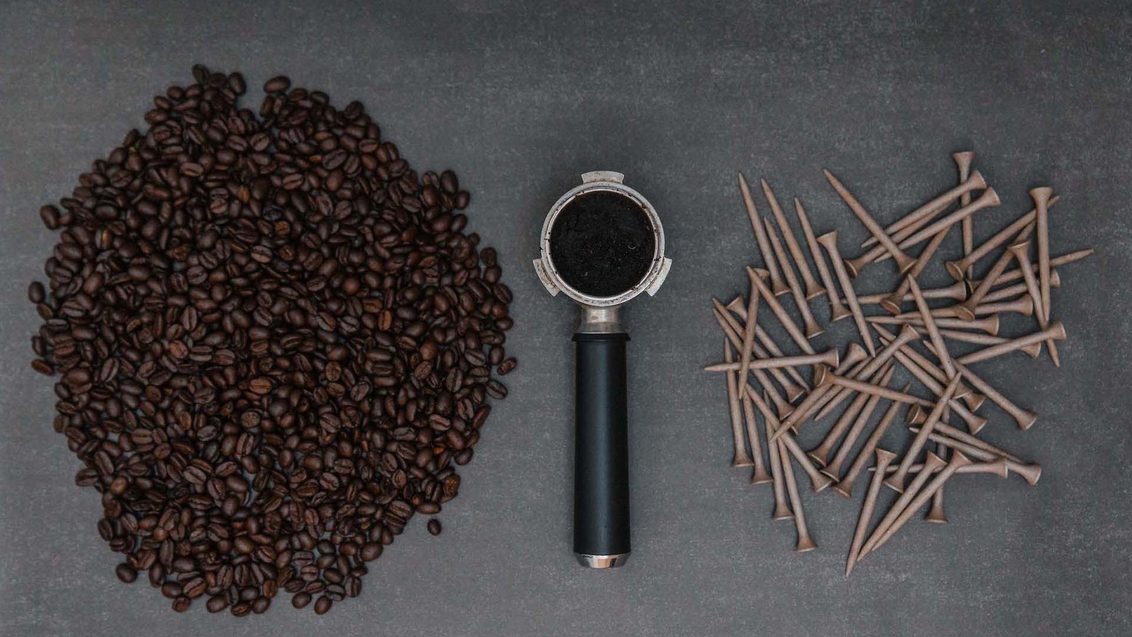Caffeine kick: Coffee grounds for golf tees

Wood or plastic? It's the choice golfers face as they decide their preferred way to tee up the ball.
But watch big-hitting Dane Niklas Nørgaard Møller closely in action on the DP World Tour and you might be surprised to hear where his tees come from.
Coffee grounds.
Wood and plastic cause all sorts of problems for greenkeepers, not least wildlife when birds pick up plastic tees and discard them on nearby beaches.
This was the case at England’s oldest course – Royal North Devon Golf Club – so they imposed a ban on plastic tees at the start of the decade.
Ocean Tees have provided a more sustainable, eco-friendly alternative to wood or plastic by introducing bamboo tees to the market.
• Watch: Luffenham Heath Golf Club ecology walk
• Brianne Kenny: ecologist and ornithologist
Every time you drink a coffee however, have you ever thought about where those grounds go?
Making compost to enrichen your garden is one obvious solution, but Danish company Greenup have started to produce golf tees from discarded grounds, prioritising local materials to reduce the hidden C02 emissions in long-distance transportation.
Good for grass
According to Greenup, 80% of coffee grounds globally get discarded, a staggering amount of waste given coffee is comfortably in the top 10 most consumed products on the planet.
With fellow Danish company Kaffibre, they say the nine billion kgs of coffee consumed worldwide each year create methane, a greenhouse gas 86 x more harmful for the environment than C02.
In other words, for every metric ton of coffee waste decomposed in a landfill, the equivalent of the emissions from the average commuter vehicle driving 40,000miles is released into the atmosphere.
“There’s phosphorous and nitrogen in coffee, which is good for the grass, so there’s nothing that will harm the course or nature,” Greenup’s Jakob Nyvold told Syngenta.
“The tee is also durable so it won’t break as much as wooden or bamboo tees. Maybe one-three tees over 18 holes.
“Plus it’s easy to put into the ground and it’s more flexible than other tees and won’t snap. It’s not made of fibers like bamboo or wood.”
Royal North Devon, where sheep and horses graze on site, can report positive findings too since January 1 2020, general manager Mark Evans telling Syngenta they are approximately 95% of the way to entirely stopping plastic use.
“We’re collecting a lot less plastic on the course than we used to and we’ve had no comments from the beach clean, which is where it all started,” said Evans.
“The feedback from people outside golf is good, we’re delighted with the way it’s gone. We’re now looking at plastic bottles and moving onto the next thing, by providing free fresh water outside and encouraging members to bring their own bottles. That’s our next step.”
Hard to spot
Nyvold said throughout 2020-21 they were giving away thousands of free tees to tournaments in exchange for feedback to enable them to make a better product.
Having sold 250,000 in Denmark, they are looking to keep production of the tees local as they seek to distribute the tees Europe wide at first.
Given golf’s constant battle with slow play however, Greenup have a hurdle to negotiate – the visibility of their tees.
“People have been telling me the color is difficult to see when it bounces into the grass,” said Nyvold.
“That’s quite difficult right now, we can’t change the color, and we can’t print on it, the printing paint is harmful too.
“Right now it’s not that fit for customizing. But I’m just happy we have an eco-friendly product which has nothing to do with deforestation or contains any plastic.”

